This past July I went with Villages in Partnership (VIP) for another medical mission trip to the Zomba region of Malawi, Africa. Once again, what a fabulous experience! During our trip we set up 3 pop-up clinics in remote villages with no electricity or running water. A group of 26 American physicians, nurse practitioners, nurses, and nursing students worked side by side with around 50 Malawian physicians, medics, nurses and community workers. We treated over 5000 patients in 3 days and saw patients of all ages from newborns to the very elderly. People arrived before daylight to wait for us and we worked until after sunset using the light of our headlamps to see.
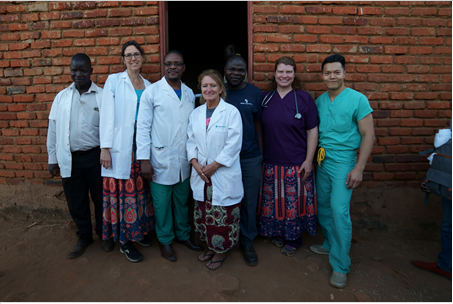
We treated a variety of illnesses including upper respiratory infections, back and joint pains, malaria, gastrointestinal and urinary tract infections, and rashes such as eczema, ringworm and scabies. At each site there were 3 to 4 American providers and 3 to 4 Malawian providers working side by side in pairs. This was extremely helpful to the Americans as the Malawian providers could help us to recognize conditions that we don’t often see in the States. Moreover, we had to learn how those conditions are treated in Malawi, often using antibiotics and other medications that we don’t use in the USA.
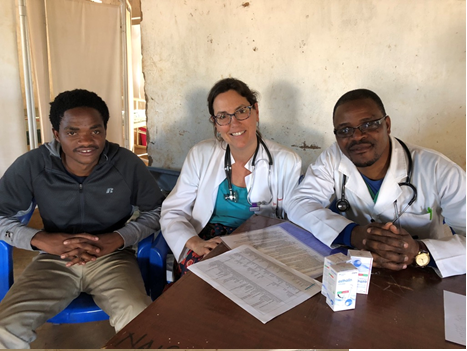
Except for the medications for malaria which were supplied by the Malawian government, we prescribed medications that we brought with us or purchased in Malawi. All care and medications were given free of charge and dispensed from a pharmacy that we created at each site. We also dispensed non-medical items such as shoes, soap and wash clothes which can be just as important when treating a medical problem.
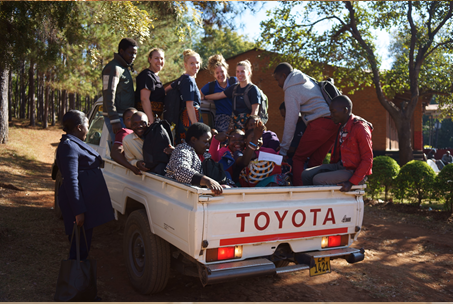
On-site testing was an important part of the clinics and was limited to blood counts, blood glucose, VDRL, malaria and HIV testing. The HIV testing was run by the Malawian government which has used a “test and treat” protocol since 2016 which has successfully increased the percentage of patients in Malawi maintained on suppressive HIV therapy. (1,2) Of the 164 patients tested only 4 or 2.4% tested positive. Each of the four patients was then assigned to a community worker and brought within 48 hours into a government run clinic to be started on HIV medication.
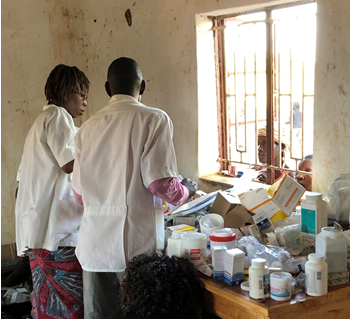
In addition to medical care, we provided dental care. Two years ago, a dentist with VIP raised the money to buy and bring over portable dental equipment. At our pop-up clinic in Kalupe an American and a Malawian dentist worked together to treat 283 patients and were delighted that they could clean teeth and do fillings in addition to pulling teeth. We also brought a large supply of amalgam so that the Malawian dentist could continue to fill teeth even after we returned home.
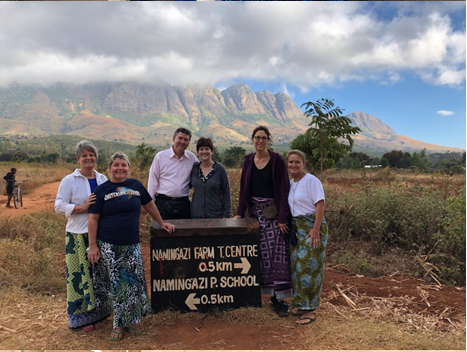
During this trip we offered a new program to dispense glasses to patients through a partnership with Global Vision 2020. (3,4) A retired American businessman was trained in the use of a hand-held device which measures eye prescriptions and then uses a set of precut lenses which are inserted into simple empty frames. These glasses were sold for $1 per pair and were the only thing we charged for during the trip. Prior to this program, the only glasses that were available were used glasses which were at best a gross approximation of a person’s actual prescription. The new glasses were extremely popular amongst the villagers and were considered so stylish that some people bought glasses with plain lenses as a fashion statement! After we left, a local Malawian who worked with us took this over and will run it as a small business.
One of the best things about VIP is that the organization continues to work in the area all year round. They have started several weekly clinics to provide year-round care staffed by medical personal whose training and salaries are paid for by VIP. In addition, VIP is partnering with the Malawian government and the village of Khanda to build a permanent clinic in this most remote area. This clinic will operate daily year-round to provide care to this needy area of Malawi. VIP’s recent 10th anniversary Gala helped to raise needed funds to build this clinic. We are all so excited to know that work can begin on this project! If you are interested in learning more about VIP, please check out their website at villagesinpartnership.org.
To learn more about the Dr. Edwards, Princeton internist, and her volunteer trips in Malawi, visit her Facebook page.
References:


